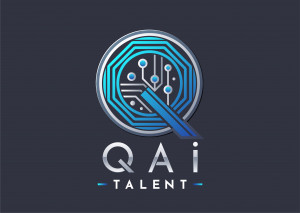You’d be joining the core applications team within one of Europe’s most advanced quantum computing programmes, working with hardware most researchers only read about.
Your work will directly influence how quantum computers move from lab prototypes to real-world problem solvers.
Access you won’t find elsewhere:
- Access to multiple quantum computing architectures and prototype systems
- Partnerships with leading global hardware developers
- Collaborative R&D spanning academia, industry, and government
- Resources and time horizons that early-stage companies can’t match
What You’ll Actually Do
This is applied quantum algorithm development — not pure theory, not pure engineering, but the challenging space where they meet.
Core technical work:
- Design and implement quantum algorithms for simulation, optimisation, and ML applications
- Benchmark processors and emulators to understand performance, behaviour, and utility
- Build the supporting software infrastructure — libraries, models, and toolchains — that make algorithms executable
- Work end-to-end, from mathematical formulation to SDK-level implementation and hardware execution
Leadership and collaboration:
- Lead technical delivery across collaborative R&D projects (PI/Co-I opportunities)
- Mentor junior engineers and shape technical direction
- Contribute to the UK quantum applications roadmap
- Publish and present non-confidential work at UK and international conferences and workshops
The Technical Environment
Hardware access:
Systems spanning several architectures — including superconducting, ion trap, and other emerging platforms — through direct partnerships and testbed programmes.
Software ecosystem:
Open quantum SDKs (Qiskit, Cirq, PennyLane, etc.), classical HPC resources, emulation environments, and internal tools designed for real-world workloads.
Team structure:
A cross-disciplinary group combining hardware engineers, software developers, and applications specialists — working together to translate quantum theory into practical capability.
Who This Is For
You’ve got the credentials:
- PhD in quantum computing, physics, or a related field (or equivalent depth from industry)
- Proven research or project delivery in quantum algorithms or applications
- Strong Python skills and hands-on experience with at least one quantum SDK
- Practical exposure to simulation, optimisation, or machine learning contexts
More importantly, you’ve got the mindset:
- You care about implementation, not just theory — you want to see algorithms run on real hardware
- You’re comfortable operating at the edge of what’s currently possible
- You value collaboration — the best quantum progress happens at disciplinary boundaries
- You prioritise impact and capability-building over pure publication count

